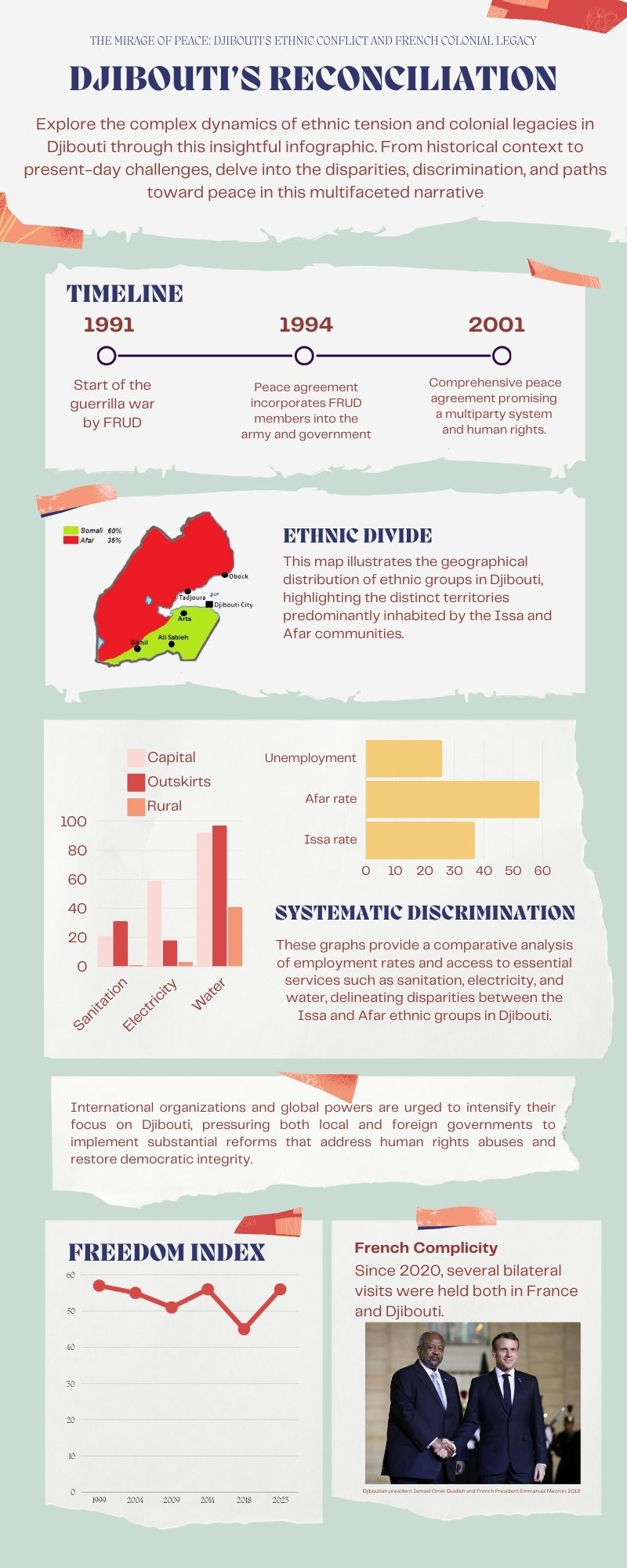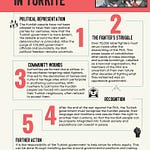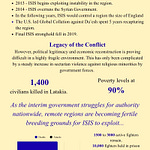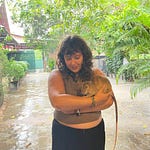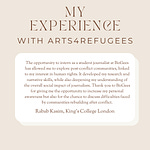The Mirage of Peace: Ethnic Violence and the Shadows of French Colonialism in Djibouti
In the early 1990s, Djibouti became a battleground for ethnic tensions that had simmered under the French colonial rule. The Front for the Restoration of Unity and Democracy (FRUD), incensed by the marginalization of the Afar ethnic group, initiated a guerrilla war against the government in October 1991. This conflict marked the beginning of a turbulent decade that highlighted the deep-seated ethnic divisions and the lingering shadows of colonial interference. Despite France's historical ties and its attempts to mediate, its support with military equipment to the government only underscored its complicated legacy in the region.
Over three years, the violence persisted with little to no hope for peace. It was not until December 1994 that a glimmer of hope emerged when a peace agreement was brokered with the moderate wing of FRUD, integrating 700 of their fighters into the national army and 200 representatives into the government. However, the more radical faction of FRUD (FRUD-Armé) continued their insurgency until 2001, when a comprehensive peace agreement finally promised a multiparty political system, and a commitment to human rights and individual freedoms, satisfying the demands of the radical Afars. This accord ended the fighting, folding FRUD's armed wing into the political landscape and setting a precedent for peace that hinged on inclusivity and comprehensive reforms.
The Djiboutian narrative from 1991 onward reveals the complex interplay of ethnic strife, failed colonial legacies, and the painful yet pivotal road to peace. This overview aims to shed light on these dynamics, providing a clear understanding of the conflict's roots and its resolution, which remains a delicate element of Djibouti's political fabric.
Colonial Legacies and Ethnic Divides
The ghost of French colonial rule looms large over the ethnic schisms between the Issas and Afars in Djibouti. During their administration, the French strategically promoted the Issas over the Afars, fostering an imbalance that was designed to deflect any collective opposition towards colonial dominance to more localized, interethnic rivalries. A stark manifestation of this policy was the relocation of Djibouti's capital from Obock, a historically significant Afar territory, to Djibouti-city, deep within Issa-dominated lands. This not only physically but also symbolically displaced the Afars, entrenching the superiority of the Issas. French colonial policy exacerbated ethnic divisions by favouring Issas over Afars, manipulating their basic needs for security and physiological safety. The capital's relocation marginalized Afars economically and socially, impacting their access to basic resources like food and water, especially as they were confined to harsh, rural environments less conducive to agriculture or trade.
Following independence, this divisive architecture was further cemented when Afars were systematically replaced by Issas in pivotal government roles. The socio-geographic split deepened with Issas primarily occupying urban centres and engaging in governance and commerce, while Afars were relegated to rural peripheries, continuing their traditional pastoralist activities. This reconfiguration of ethnic roles underpinned the tensions that ultimately erupted into violence with the onset of the FRUD rebellion. The systemic placement of Issas in dominant societal roles post-independence alienated Afars, denying them a sense of community and belonging. This segregation was maintained through social practices and political appointments that excluded Afars from significant interactions with other groups, fostering an environment ripe for ethnic loyalty over national unity.
Systematic Discrimination and Repression of the Afar Minority
The Djiboutian government's discrimination against the Afar minority has manifested in overt harassment, genocidal practices, and entrenched social discrimination, continuously exacerbating ethnic tensions. Notably, in 2021, a series of arbitrary arrests targeted Afar nomads in the northern regions, aimed at dissuading any affiliations with the FRUD or other opposition entities. Those detained were often relatives of individuals involved with the FRUD-Armé, and many were held without trial, highlighting a clear intent to intimidate the Afar community. In a more violent display, August 2021 saw national police incendiaries destroy Afar homes; resistance was met with gunfire, resulting in 15 Afar deaths.
Beyond harassment, genocidal acts include the systematic rapes of Afar women by the national army, a heinous strategy that originated from the government’s offices. Attempts by husbands to protect their wives led to torture and further brutality. The Afar language was systematically excluded from educational curriculums. Additionally, in the teaching of languages through radio broadcast, the allocation of resources and access to broadcast time is significantly lower for the Afar language than for the Somali language of the Issa clans. Afars faced extensive discrimination, impacting their self-esteem and cognitive development through targeted educational policies. Exclusion from political and high-status professional roles prevented them from contributing to societal knowledge and limited their opportunities for intellectual engagement and recognition. Furthermore, Afar populations were confined to the Obock region under severe restrictions, including curfews and food blockades orchestrated by President Guelleh’s administration, severely limiting their access to essential services like healthcare and potable water.
Socially, the Afars face stark discrimination with unemployment rates soaring to 90% within their communities, and those few in government positions were relegated to symbolic roles. Prestigious civil service positions, including spots in the presidential guard, were reserved for clans closer to the president, systematically excluding the Afars. Even Afar soldiers with valuable skills face early termination if these skills are perceived as potential threats to the regime. By relegating Afars to peripheries and limiting their expressive opportunities, the government stifled any form of aesthetic expression or cultural development among the Afar. The lack of self-actualization opportunities has perpetuated low self-worth and a cyclic trap of underachievement and marginalization.
This layered discrimination, initially rooted in French colonial policies that favoured the Issas, has been ruthlessly leveraged by the current government to suppress and control the Afar minority, turning traditional clan rivalries into tools of repression.
Consolidation of Authoritarian Power and the Erosion of Civil Liberties
In Djibouti, the post-independence era has markedly seen the reinforcement of an Issa-dominated executive power, deviating sharply from the traditional ethnic power-sharing that characterized the nation’s governance. This consolidation of power has systematically marginalized non-Issa groups, particularly the Afars, and perpetuated an unequal distribution of power which has entrenched the president's authoritarian rule.
The authoritarian grip tightens further when considering the state of civil liberties in the country. Media and public expression have been severely curtailed, with journalists facing intimidation, arbitrary arrests, and torture. An incident in 2017 highlights this repression vividly when a former education minister was arrested, humiliated publicly, stripped of his passport, and his personal electronics belongings confiscated for contradicting the government’s narrative. Similarly, manifestations of dissent have been brutally suppressed. For example, in 2013, following the legislative elections, the government’s response to protests, claiming that elections were rigged, resulted in tens of casualties and the arbitrary detention of over 800 persons. More starkly, in 2015, a massacre at a religious meeting targeted member of the opposition, underscoring the violent lengths the government will go to maintain control.
Torture at military bases is routinely used against those suspected of FRUD affiliations or simply belonging to the Afar ethnic group, with incidents like the torture deaths of two Afar nomads in August 2016, who were merely searching for lost camels, illustrating the impunity enjoyed by military personnel. The judicial system itself is manipulated to support this authoritarian regime, characterized by illegal detentions and a lack of fair trial processes, particularly evident in the Tadjourah region known for its ties to the FRUD. The notorious Gabode prison, meant to house 350, held 600 in 2016 under deplorable conditions, symbolizing the systemic injustice and the government’s blatant disregard for human rights and legal standards. This cocktail of repressive tactics showcases not only the consolidation of power but also the alarming erosion of civil liberties under Djibouti's authoritarian regime.
French Complicity in Djibouti's Authoritarian Regime
The establishment of ethnic divisions during French colonial rule has fuelled the civil war by elating Afar resentment as well as laying the groundwork for the authoritarian and repressive regime based on ethnic divisions. The French support of the government side during the civil war further legitimizes the ethnicity-based violence, fostered an environment where ethnic tensions are maintained as political tools, undermining national unity and collective understanding and have indirectly contributed to the security and economic policies that prioritize elite benefits over the basic needs and protections of the general populace.
In the ensuing years under President Omar Guelleh's rule, the French government has consistently supported the authoritarian practices that have characterized the regime. This support has not only been military but also political and diplomatic, reinforcing Guelleh's governance style that suppresses opposition and curtails freedoms with little to no international repercussion. French backing, motivated by strategic interests such as counterterrorism efforts, regional power projection, and control over vital oil trade routes (of the Red Sea and Bab El Mandeb strait), has effectively enabled the continuation of these repressive practices in impunity.
The preferential treatment extends economically as well; France pays significantly less (40 million of US dollars per year) for its military bases in Djibouti compared to what the United States (63 million of US dollars per year) pay. China pays an even lower rate of 23 million of US dollars per year for 10 years lease due to a 1 billion US dollars loan granted to Djibouti. This reflects the deep-rooted political leverage France continues to exert. This relationship underscores a stark example of international politics where strategic interests trump democratic values and human rights, allowing a regime that engages in ethnic discrimination, unjust incarceration, and severe media suppression to persist unchallenged. Thus, French involvement does not merely influence Djiboutian politics—it actively shapes a landscape where authoritarian and exclusive governance can thrive without consequence.
Conclusion
In the shadows of Djibouti's serene landscapes lies a turbulent saga of ethnic strife and suppressed freedoms, a narrative deeply entrenched in the remnants of French colonial rule and sharpened by contemporary authoritarian governance. The protracted conflict between the Afar and Issa ethnic groups, exacerbated by the Djiboutian government’s relentless repression and systematic discrimination against the Afars, reflects a stark deviation from the ideals of independence and equality. This divide not only echoes the old colonial playbook of 'divide and rule' but also underscores the current government's strategy to cement Issa dominance, using ethnic disparities as tools for political and social control.
The brutal suppression of the Afar people, ranging from genocidal actions to economic sidelining, paints a grim picture of a community under siege. Harrowing accounts of human rights abuses—systematic rapes, arbitrary detentions, and torture—reveal the depths of state-sponsored terror, all under the watchful eyes of an international community that includes France. The strategic silence of powerful nations on these atrocities is not just a diplomatic oversight but a calculated disregard for democratic values in favour of geopolitical gains. This complicity is vividly illustrated by the preferential economic treatments and political backing France continues to extend to President Guelleh’s regime.
As Djibouti treads on the precarious path of faux peace, the international community, media, and humanitarian organizations must intensify their scrutiny and pressure on both the Djiboutian and French governments to uphold human rights and push for genuine democratic reforms. For peace to be sustainable, not only must it come through reconciliation and equal political representation, but also through the healing of a nation fractured by ethnic divisions and external influences. Djibouti’s future hinges not on the suppression of dissent or the marginalization of the Afar minority but on embracing a pluralistic and fair governance system that rectifies the historical injustices inflicted by colonial and post-colonial rulers. The road to peace and equality is fraught with challenges, but it is only through confronting these issues head-on that Djibouti can hope to forge a unified national identity that transcends ethnic lines and colonial legacies.
In this episode Juliette discusses Djibouti Haiti and it’s post conflict experience. She is a student journalist with us on a placement organised with War Studies Department, King’s College, London. This article was edited using Lex.page.
Thank you for reading an A4R 🎨 Post. Don’t forget to visit our gift shop here. Every purchase scales our impact and pays our bills.



